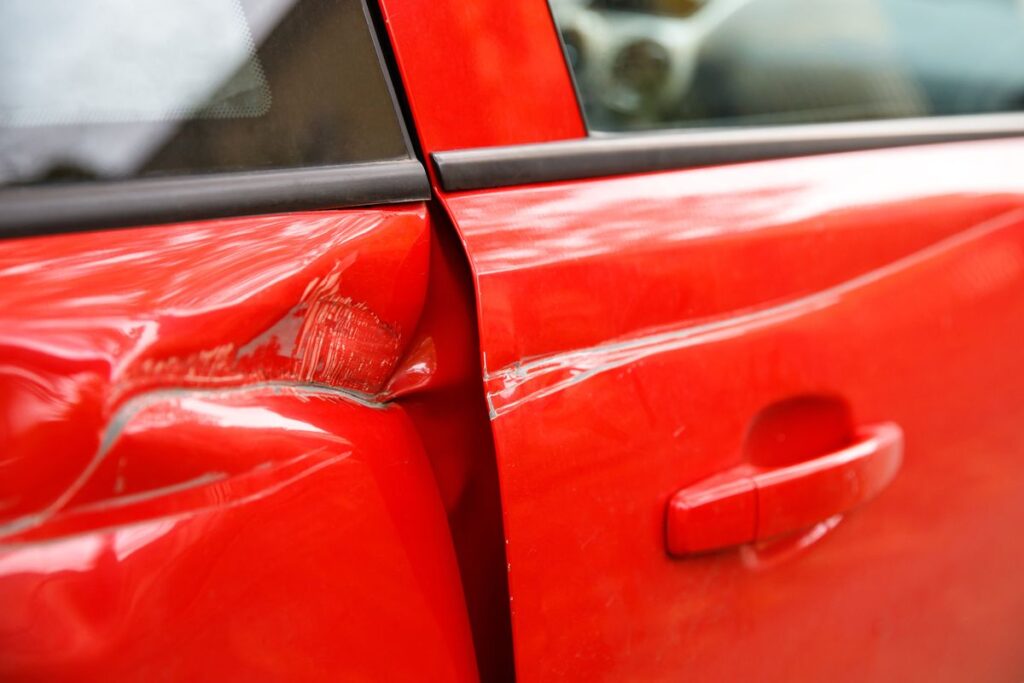Navigating the aftermath of a car accident can be overwhelming. From dealing with injuries to managing repair costs, the process is fraught with challenges. However, when pursuing a legal case for compensation, it’s crucial to avoid certain mistakes that can undermine your claim. Here are 10 common missteps to steer clear of to not jeopardize your car accident case:
1. Not Seeking Immediate Medical Attention
After an accident, adrenaline can mask pain and injuries. Some might feel fine initially, only to experience symptoms days later. Always seek medical attention immediately after an accident. This not only ensures your well-being but also provides crucial medical documentation for your case.
2. Admitting Fault at the Scene
It’s human nature to apologize or accept blame, especially in stressful situations. However, admitting fault at the accident scene can significantly impact your case. Even if you believe you’re at fault, many factors could have contributed to the accident. Let the investigators determine the cause.
The Emotional Turmoil: Understand that the moments following an accident can be overwhelming. There’s a sudden rush of fear, relief, anxiety, and sometimes, guilt. These potent emotions can cloud judgment and lead us to make hasty declarations or admissions.
The Complex Nature of Accidents: Collisions, more often than not, result from a combination of factors. There could be unseen elements at play, such as vehicle malfunctions, obscured road signs, or even the other driver’s undisclosed distractions. Thus, what may seem clear-cut at first glance can be much more intricate upon closer inspection.
Legal and Insurance Implications: In the realm of law and insurance, words carry weight. Admitting fault, even casually, can be used against you, affecting claims, liabilities, and potential compensation. This is especially true in states with comparative negligence laws where the degree of each party’s fault can adjust the compensation.
Role of Professional Investigators: Accident reconstruction experts, law enforcement officers, and insurance adjusters undergo specialized training to dissect and understand the nuances of crash scenes. They consider tire marks, vehicle damages, witness testimonies, and more to piece together the incident’s puzzle.
Bridging to Other Evidences: Your premature admission might overshadow other potent evidences, like dash cam footage or bystander videos, which could provide a clearer picture of the accident dynamics.
3. Failing to Document the Accident
Photos, witness statements, and police reports play a pivotal role in building a strong case. Always document the scene, take pictures of vehicle damages, injuries, and any relevant road conditions. Gather contact information from witnesses and ensure you obtain a copy of the police report.
Detailing Vehicle Damages: Beyond the obvious dents and shattered glass, subtle damages can manifest that might not be instantly visible. Capturing multiple angles and close-ups can unearth underlying damages, ensuring they aren’t overlooked during insurance claims or court proceedings.
Recording Injuries: While major injuries are immediately evident, minor bruises, cuts, or swellings can develop over time. Documenting them right after the accident offers a baseline against which subsequent medical examinations can be compared.
Spotlight on Road Conditions: Factors like wet surfaces, potholes, obscured signage, or malfunctioning traffic lights can significantly contribute to accidents. Capturing these in photos can provide a more holistic view of the accident’s contributing factors, potentially revealing shared or external liabilities.
Witnesses: The Neutral Third-party Perspective: Witnesses offer an unbiased recounting of events. Their testimonies can corroborate your narrative or introduce new perspectives that hadn’t been considered. Collecting their contact details ensures their accounts can be accessed during investigations, legal proceedings, or settlement negotiations.

4. Not Reporting the Accident to Your Insurance
Even if the accident seems minor, always report it to your insurance company. Failing to do so might violate your policy terms and could complicate matters if injuries or damages surface later.
The Nature of Damages: Vehicle structures are intricate, and while superficially everything might appear intact, underlying damages can lurk. For instance, a minor bump could cause alignment issues, or unseen internal damages might compromise safety mechanisms. Reporting all accidents, no matter how trivial they appear, ensures you’re covered for such latent defects.
Delayed Injury Manifestations: Medical professionals will attest that not all accident-related injuries are instantly discernible. What might initially seem like a minor ache could escalate into a chronic issue or a subtle injury might evolve into a severe health complication over time. Failing to report an accident could jeopardize your eligibility for medical compensation later on.
Protecting Against Potential Claims: There’s no guarantee that the other party won’t file a claim days or even weeks after the incident. If they decide to do so and you haven’t informed your insurer, you’re at a significant disadvantage. The insurer might question your credibility or the validity of your account due to the delay.
Preservation of Policy Integrity: Most insurance policies stipulate a duty to report any incidents involving the insured vehicle, regardless of the magnitude. By not adhering to this obligation, you’re potentially violating your policy terms, which can have ramifications such as premium hikes, policy nullification, or refusal of future claims.
Facilitation of Evidence Collection: Prompt reporting allows insurance companies to assess damages and gather evidence while it’s fresh. Delaying this can render evidence collection challenging or impossible, making it tougher for your insurer to defend your interests.
5. Giving Recorded Statements Without Legal Counsel
Insurance adjusters might ask for a recorded statement post-accident. While they may seem friendly, remember they work for the insurance company, not you. Always consult with an attorney before providing any statements to ensure you don’t inadvertently harm your case.
6. Accepting the First Settlement Offer
Insurance companies often offer a quick, low settlement to close the case swiftly. While it might be tempting, especially with mounting bills, accepting the first offer can leave you with less than you deserve. Always consult with an attorney to evaluate the offer’s fairness.
Georgia’s Insurance Landscape: It’s essential to understand that Georgia operates under an “at-fault” system. The party deemed at fault for the accident, or their insurer, is responsible for covering damages. This system inherently prompts insurance companies to minimize their financial exposure, often leading to initial offers that undervalue the claim.
Economic vs. Non-Economic Damages: The state of Georgia recognizes both economic (tangible) and non-economic (intangible) damages in personal injury claims. While the insurance’s first offer might account for visible damages and immediate medical expenses (economic damages), it often overlooks non-economic damages like pain and suffering, emotional trauma, or reduced quality of life. Without legal counsel, you might not even be aware you’re entitled to these compensations.
Potential Future Costs: Especially in the Peach State, with its bustling highways and growing urban sprawls, accidents can result in injuries that have long-term implications. You might need ongoing physical therapy, future surgeries, or prolonged medications. A quick settlement might not account for these prolonged expenses, leaving you financially strained down the road.
Georgia’s Modified Comparative Negligence Rule: This rule stipulates that if you’re found even partially at fault for the accident, your compensation can be reduced by your fault percentage. Insurance companies are adept at highlighting this and might use it as leverage to convince you to settle quickly. Consulting with an attorney can help counteract such tactics and ensure you’re not unduly penalized.
The Power of Local Counsel: A Georgia-based personal injury attorney brings to the table not just legal expertise but also local knowledge. They’re familiar with Georgia’s specific statutes, precedent cases, and even the tendencies of local insurers. Their guidance can be invaluable in assessing the fairness of an offer.
7. Neglecting to Follow Medical Advice
In the aftermath of a car accident in Georgia, your medical records play a pivotal role in establishing the extent and impact of your injuries. When you neglect prescribed treatments or miss therapy sessions, insurance adjusters and opposing attorneys can argue that your injuries might not be as debilitating as you portray them to be.
8. Using Social Media
Posting about your accident or injuries on social media can be detrimental. Insurance adjusters and opposing attorneys might monitor your profiles for evidence that contradicts your claims. It’s best to stay off social media or set your profiles to private during your case.
9. Not Retaining an Experienced Personal Injury Attorney
Car accident cases can be complex. Having an experienced car accident attorney ensures you navigate the legal maze effectively. They can advise on the best course of action, negotiate with insurance companies, and represent you in court if necessary.
10. Waiting Too Long to File a Claim
Every state has a statute of limitations for filing car accident claims. If you wait too long, you might lose your right to pursue compensation. Always be aware of these deadlines and act promptly.
In Georgia, the statute of limitations for car accident claims is specific and can vary based on the nature of the claim. For personal injury claims, such as those involving physical injuries from the accident, victims have two years from the date of the accident to file a lawsuit. If you’re seeking compensation for property damage, like car repairs, you also have a two-year window from the accident date.
However, if the car accident resulted in a fatality and the family wishes to pursue a wrongful death claim, the two-year statute still applies, but it starts from the date of the deceased’s death, which might be different from the accident date.
It’s also essential to note that if your claim is against a city or county in Georgia, the time frame to file can be much shorter, sometimes as brief as six months. Given these varying time frames and the complexities involved, it’s crucial to act swiftly after an accident.
Conclusion
Car accidents are stressful, and the subsequent legal process can be daunting. However, by being aware of these common mistakes and taking proactive steps, you can position yourself for a successful outcome. It’s important to consider these common mistakes to not jeopardize your car accident case. But remember: always prioritize your health, gather ample evidence, and consult with a seasoned personal injury attorney like our team at Rebecca Kay Sapp Law Firm to guide you through the intricacies of your case.

